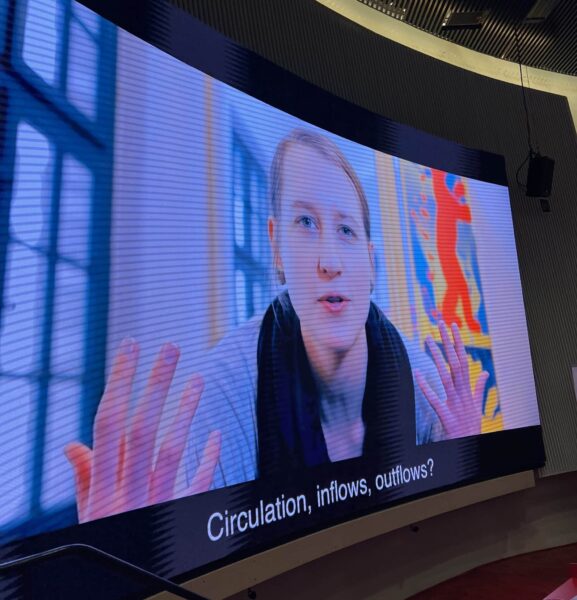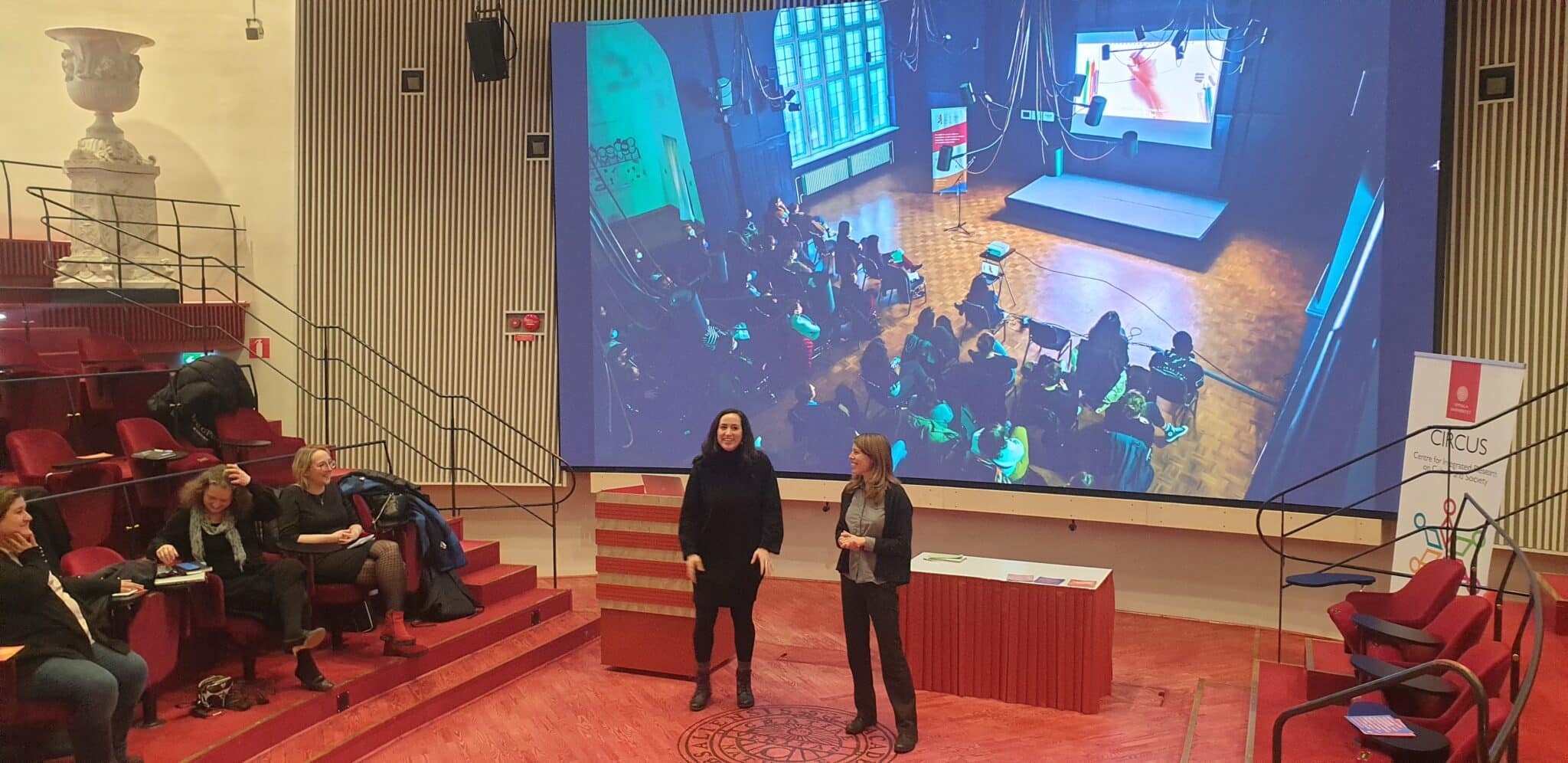Earlier this month, our team was in Uppsala, Sweden for the kick-off of a new Horizon Europe project on researching the drivers of return migration (more on that soon!). On Friday, March 10 we had the opportunity to hold a two-hour screening and discussion on the potential of digital storytelling for shifting migration narratives, particularly focused around communicating migration research.
The screening and discussion took place in the beautiful Humanities Theatre at Uppsala University and attracted over 50 participants, primarily members of the Horizon Europe project, academics, and students from the university.
During the event, we encouraged the academic-driven audience to focus not only on the topics presented in the videos we shared, but to take particular note of the formats and methodologies we implemented as well as the protagonists featured. The videos came from a variety of our series over the years, including The Big Climate Movement, Rethink Nationalism, Rethink Migration: Our Best-Of Series, and Migrant Lives in Pandemic Times. This selection featured protagonists ranging from academic experts and the public to migrants and youth activists as well as the Migration Matters team. They also represented a mix of in-person productions and remote productions during Covid.

A video on borders from our #RethinkMigration: Best-Of” series.
The ensuing discussion focused on the types of voices best-suited to communicate with the general public on issues linked to migration, the co-creation of digital stories together with migrants and refugees, stylistic choices such as emphasizing formality vs. informality (e.g. choices of whether to film inside or outside, the use of b-roll footage), and the challenges of interviewing those with lived experience and handling sensitive topics.
This event was organized within the framework of the newly funded Horizon Europe project “GAPs: Decentring the Study of Migrant Returns and Readmission Policies in Europe and Beyond” and co-hosted by the Centre for Multidisciplinary Research on Religion and Society (CRS) and the Centre for Integrated Research on Culture and Society (CIRCUS). Thank you to Uppsala University and our partners for having us!
